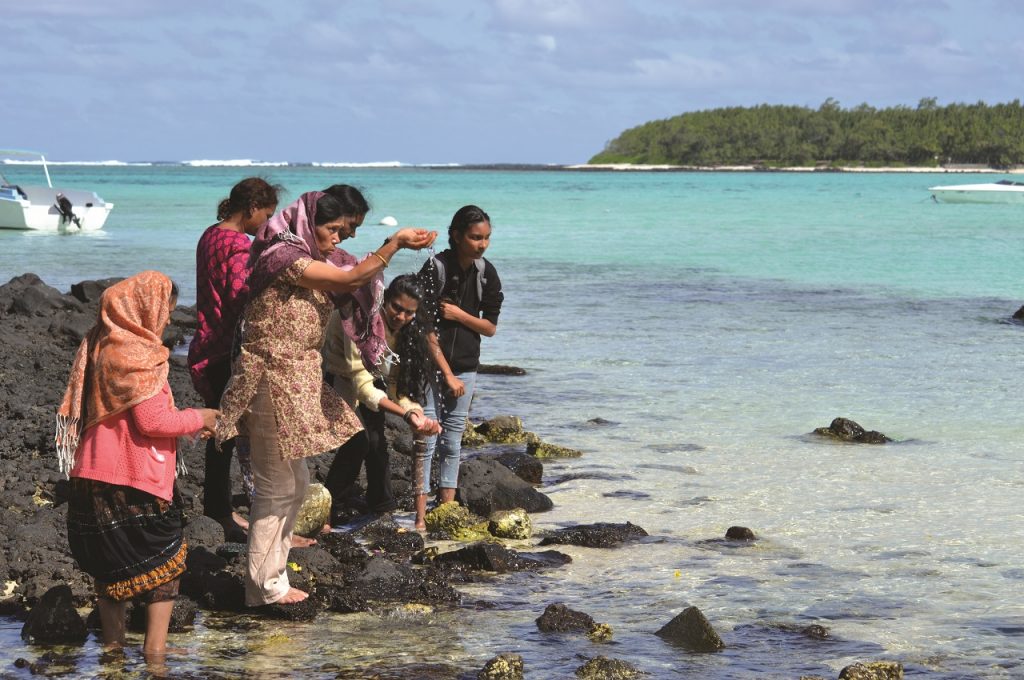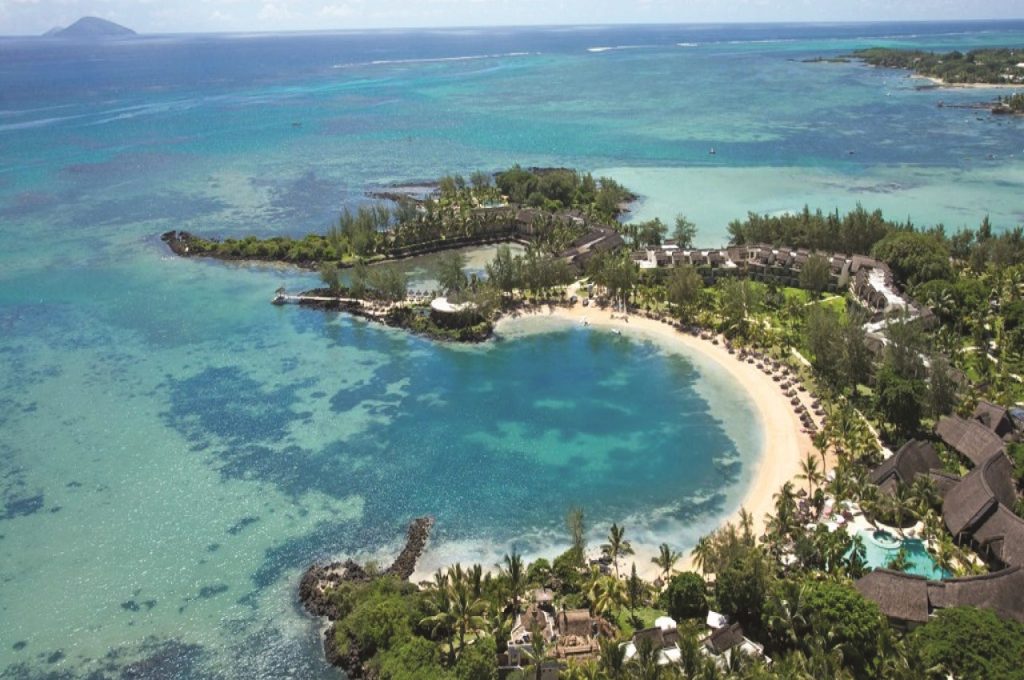By Neha Sinha
Located about 900 km east of Madagascar, Mauritius is the ‘Little India’ of the southwest Indian Ocean. While the vast majority of ethnically heterogeneous nations have struggled to form successful democracies, Mauritius has not. Since independence, in the late 1960s, Mauritius has been easily the most established and successful democracy in Africa. What has been the key to Mauritius’ success is defined by one word ‘Mauritianness’.
The country’s varied ethnic and religious groups are united by a common sense of nationhood that supercedes communal interests and emphasizes tolerance and compromise. Mauritius shares almost a umbilical link with India. What sets Mauritius apart from others are a number of reasons. The most significant being the achievement and status of Mauritians of Indian origin, in terms of political power and state control, educational and socio-economic progress, maintenance of cultural and religious identity.
The indentured labourers who migrated to Mauritius in the 19th century originated massively though not exclusively from the central province of India. Indo-Mauritius constitute the majority of population 70 percent. Out of this, more than 30 percent are from Bihar and Uttar Pradesh speaking Bhojpuri as their mother tongue. The celebration of historical and ethnic ties between Bihar and Mauritius, considered an “economic miracle” and a model of plural democracy, can enhance both the prestige of Bihar in India and that of Biharis in diaspora. In the longer term, this new diasporic policy seeks to attract the benevolence of ‘successful Bihari’ around the world, in the form of remittances, investments or charitable donations.
The purpose of my visit was to find out the Bhojpuri identity and its formation in Mauritius. The research explored the origin and assimilation of the identity into the new geographical area and how the diaspora has maintained its uniqueness, rich culture, and heritage etc. During my field work I learnt more about their colonial adaption and success towards the flourishment of the Bhojpuri culture in Mauritius. I am grateful to the University Library and Professors who helped me to gather more information on how the colonial policy and its transition in post-independence period has enabled the Indian Diaspora to maintain its identity. It was good to learn that the role and contribution of Bhojpuri diaspora have played a significant role in
the development of Mauritius.
The Island of Mauritius experienced successive waves of colonisers including the Portuguese, Dutch, French and finally, the British. Mauritius did not have a native population when it was first ‘discovered’ and its current population is primarily constituted of European settlers as well as African, Indian and Chinese immigrants. The French were the first permanent settlers on the island following French colonisation in 1715. Under French rule, the island thrived and sugar cane cultivation prospered. Slaves were brought from different parts of mainland Africa, including Mozambique and Madagascar. Later on, the British took over the island in 1810 and following the abolition of slavery in 1835, Indian indentured labourers were brought from Bihar, Madhya Pradesh and other parts of India to work in the sugar cane plantations in place of the former slaves. The Indians brought a radical and permanent change in the ethnic composition of the population of the island, making up two-thirds of the population of the island by 1871. The Indo- Mauritians are divided along religious lines between Hindus and Muslims. The Hindus are further divided along class, linguistic and caste lines. Within a few decades, the Indian labourers became, and still remain, the largest populated group on the island.
Chinese immigrants arrived since the early 1830s and most became involved in the retail sector and trade. The different groups of migrants contributed to the diversity of the current population such that Mauritius has become one of the most ethnically heterogeneous nations. The population presently constitutes four ethnic groups and four major religious groups, namely, the Franco-Mauritians and Creoles who are Catholic; the Indian community, Muslim and Hindu; and the small Chinese community, either Buddhist or Catholic. In postcolonial Mauritius, political rule has been dominated by Hindus, although the political institutions in the country have ensured representation of the different ethnic groups. This fosters a feeling of justice and equity in terms of representation of diverse interests. Also, this has been a major factor which has enabled Mauritius to maintain peace and political stability despite the prevalence of ethnic fragmentation in Mauritian society. Diasporic identification and connections therefore remain strong in postcolonial Mauritius and the government has maintained good relations with the native countries or homelands of the ancestors of the Mauritian population.
In March 2015, during his official visit to Mauritius, the Indian Prime Minister Narendra Modi referred to Mauritius as “Chotta Bharat” which means “Little India” and is a term rendered popular by former Prime Minister Indira Gandhi in the 1970s during her visit to Mauritius. A history of the Indian diaspora as indentured labourers in Mauritius materialised in the Aapravasi Ghat, which is the original immigration depot and has become a UNESCO world heritage site. India has offered expertise and funding to help Mauritius move from its traditional economy of sugarcane and tourism. The island has also benefited from assistance from India in civilian structures, building infrastructure, health, science and technology, information technology, building and consolidating the capacities of Mauritius as a financial services hub and now a petroleum hub. India provides scholarships for Mauritians wishing to pursue higher studies in India and sponsors the promotion of Indian culture and languages through educational institutions such as the Mahatma Gandhi Institute, the Rajiv Gandhi Science Centre, Indira Gandhi Centre for Indian Culture, among others.

Both India and Mauritius share several cultural, historical, linguistic and literary similarities. National Day of the island, to which PM Modi was invited on March 12, was chosen as the anniversary of the Salt March undertaken by Mahatma Gandhi in 1930, a key step towards the independence of India. Mauritius celebrates its National Day on March 12 as a mark of respect to Mahatma Gandhi, who began his Dandi march on this day in 1930. In a statement issued in New Delhi, President Pranab Mukherjee said, “This day is not only significant in the history of the political struggle for freedom of both our countries but also symbolises how both India and Mauritius uphold the values of democracy.”
“My visit to Mauritius will aim to strengthen our age-old civilisational ties with ‘Chhota Bharat,’” said PM Modi, before leaving India, referring to a term popularised by the former Prime Minister Indira Gandhi, who made the first state visit to the island in 1970, when more than a lakh people had gathered to welcome her in Port Louis. Mauritius will host the 11th International Conference on Hindi language in 2018. This is the third time that the island will host such an event, which this time should coincide with the opening of the headquarters of the World Hindi Secretariat, whose construction is long some years. India and Mauritius certainly have a privileged relationship that remains a cornerstone of bilateral cooperation and provides common ground for concerted actions at regional and global levels.
Mauritius, a small island nation, has benefited considerably from its ancestral diaspora connections with France, India and China. The developmental, financial, technical and educational assistance from these ancestral diaspora nations has contributed to the development of the country. Yet, with the growing significance and size of the Mauritian diaspora living and working overseas, and the looming economic challenges that Mauritius faces in the current global age, the potential that the Mauritian diaspora presents for investment and development has been recognised as a significant source of investment and skills to be tapped into.










